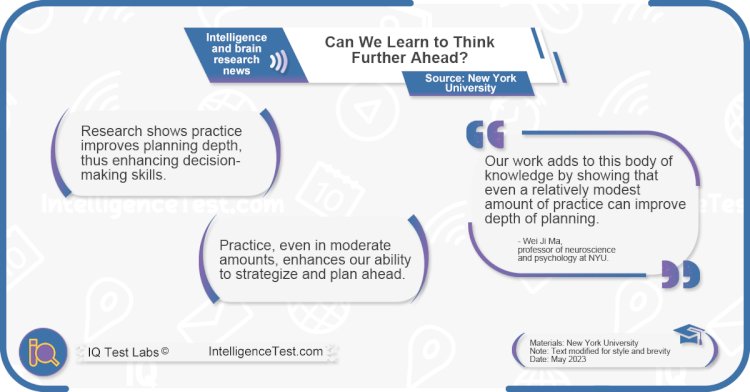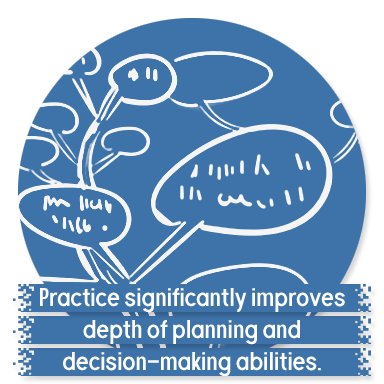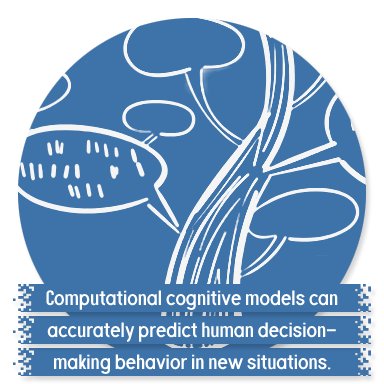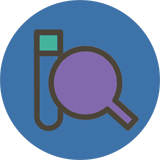Can we learn to think further ahead?
Discover how practice enhances decision-making and planning abilities.

Summary
The capability to plan ahead, a hallmark of human intelligence, can be significantly improved with even a modest amount of practice, as recent cognitive science research reveals. Through the development of a computational cognitive model, researchers have gained insights into the depth of planning and decision-making processes in the human mind.

Introduction
Cognitive scientists from New York University's Center for Neural Science have conducted a study to understand the role of planning depth, defined as the number of steps an individual thinks ahead, in decision-making. Although artificial intelligence has made impressive strides in solving complex planning problems, there's still a need for a deeper understanding of the depth of planning in humans.

Main points
- The researchers had individuals play a game, a sophisticated version of tic-tac-toe, requiring deep planning or thinking several steps ahead. The moves and strategies were then studied using a computational model designed on AI principles.
- In this model, players create a 'decision tree' in their minds, similar to planning for multiple possible scenarios in a complex situation. This study showed that human behavior could be effectively understood and predicted using a cognitive model based on a heuristic search algorithm.
- The results of the study demonstrated that better planning is driven by the ability to recognize patterns more accurately and in less time. This outcome points towards the benefits of practice and experience in improving cognitive abilities.
Conclusion
This groundbreaking research not only validates that a modest amount of practice can improve one's depth of planning but also opens up new avenues for studying the development of planning abilities in different age groups. The ability to connect lab-based findings to real-life planning and decision-making situations is a crucial aspect of this study, highlighting the importance and potential of cognitive science research in enhancing our understanding of human cognition.
Source and credits
Materials: New York University
Note: text modified for style and brevity
Date: May 2023
Research reference
Nature, 2023













